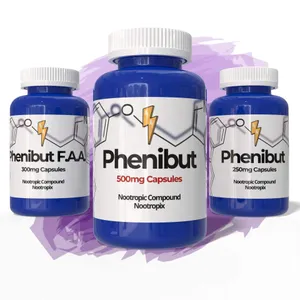
Celebrity Vegans: How the Stars are Inspiring a Plant-Based Movement
In recent years, there has been a surge in interest surrounding the vegan diet, a way of life that eliminates all animal products, including meat, dairy, and eggs. This dietary choice is rooted in ethical, environmental, and health considerations, and many individuals are adopting it to improve their overall well-being. But how does a vegan diet impact one’s fitness and bodybuilding goals? 🤔
Protein is a vital component for muscle growth and recovery, a point of primary concern for athletes and bodybuilding enthusiasts following a vegan diet. However, contrary to the misconception that vegan diets lack sufficient protein sources, a well-planned vegan diet can deliver adequate protein through a variety of plant-based sources. Options such as lentils, chickpeas, quinoa, tofu, tempeh, and protein-rich seeds and nuts offer substantial protein intake to support muscle development and repair. Additionally, vegan athletes often supplement their diets with plant-based protein powders made from pea, hemp, or brown rice protein to meet their protein needs more conveniently.
Beyond protein, a vegan diet provides higher intakes of various vital nutrients that support overall health and athletic performance. These include fiber, antioxidants, and phytochemicals found abundantly in fruits, vegetables, whole grains, and legumes. These components can enhance blood flow, reduce inflammation, and optimize recovery time – essential factors for those engaged in intense physical training and bodybuilding. 🌱
Moreover, the diet is typically lower in saturated fats and free from cholesterol, supporting cardiovascular health and potentially reducing the risk of chronic diseases. A well-balanced vegan diet can also lead to better weight management, a crucial aspect for athletes seeking optimal muscle definition and performance.
It’s essential to note, however, that vegan diets require careful planning to ensure nutritional adequacy. Some nutrients like vitamin B12, vitamin D, omega-3 fatty acids, and iron may be challenging to obtain exclusively from a plant-based diet. Therefore, individuals on vegan diets should consider fortified foods or supplements to maintain optimal levels of these nutrients. Advanced planning is particularly crucial for those aiming for peak physical performance and muscle gain in bodybuilding contexts.
Conclusion
A vegan diet can effectively support bodybuilding and fitness goals when approached with careful planning and consideration to meet nutritional needs. By utilizing diverse plant-based protein sources and being conscious of nutrient intake, individuals can achieve muscular growth, recovery, and overall health. The benefits of a vegan diet extend beyond personal fitness, aligning with ethical and environmental values for many. As awareness continues to grow, so does the potential to harmoniously blend veganism with athletic excellence. 🏋️♂️
FAQs
Q: Can you build muscle on a vegan diet?
A: Absolutely! By ensuring a sufficient intake of protein from sources such as legumes, tofu, and plant-based protein powders, muscle gain is achievable with a vegan diet.
Q: What are some supplements vegans should consider?
A: Vegans may need to supplement with vitamin B12, vitamin D, omega-3 fatty acids, and iron to ensure adequate nutrient levels.
Q: Is a vegan diet suitable for all athletes?
A: While a vegan diet can support various athletic goals, it’s important for individuals to plan their diet carefully, possibly with the guidance of a nutritionist, to meet their specific nutritional requirements.
For those looking to explore a plant-based lifestyle while maintaining a fitness-focused regimen, platforms like Codecanyon may offer innovative tools to track your diet and workouts effectively.
A vegan diet is a plant-based eating regimen that excludes all animal products, including meat, dairy, eggs, and honey. Embracing a vegan lifestyle often stems from ethical, environmental, and health considerations. Ethically, many people choose veganism to oppose animal cruelty and exploitation. Environmentally, a vegan diet is praised for its lower carbon footprint and reduced strain on natural resources compared to diets high in animal products. Health-wise, a well-planned vegan diet can provide numerous health benefits, such as lower risks of heart disease, hypertension, and certain cancers, and it can promote weight management. However, those following this diet must ensure adequate intake of essential nutrients like vitamin B12, iron, and omega-3 fatty acids, often through fortified foods or supplements, to maintain a balanced and healthy lifestyle.













